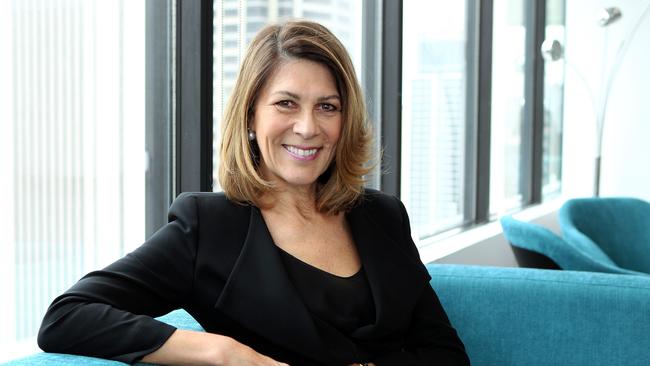Crap apps synonymous with poor industry funds
The union-controlled superannuation lobby might want to think about how to engage millennials.

In my constant quest to educate, enthuse and engage millennials about superannuation, I checked in with one recently about his fund.
He’s an avid user of the digital platform of his bank, using it variously to trade shares, pay bills, shop online, top up his small investment fund.
But his super fund, which happens to be a large industry fund? “Nah,” he said. “I rarely look at it. The app’s crap.”
Instead of pouring their members’ hard-won retirement savings into an over-the-top, mildly histrionic scare campaign against the banks, the union-controlled superannuation lobby might want to think about how instead to engage millennials.
Instead of creating a silly ad which only turns people off super as a dark and scary place and creates a hyperbolic wedge between various players in the sector, it might have been a whole lot smarter to give consumers some good news about the system, which is good public policy, and which now, more than ever, needs bolstering and confidence.
Our 25-year-old super system has done pretty well up till now. But we must ensure this strong piece of public policy is fit for the next generation — where consumers and choice rule and millennials choose to work in the gig economy.
Young people (and some not so young) manage many financial services on their digital device — they want great tech and convenience. They want to be able to choose to put their super into a fund that suits their purpose and sometimes, their lifestyle.
Can we honestly say they can do that now? There is a plethora of super funds on the market designed for people to choose where they put the 9.5 per cent of their money every week — because let’s not forget that super is our wages, our savings for retirement.
There are many and varied funds on the retail market now which are designed expressly for a more engaged and socially aware generation — for example, ethical funds; funds that invest in “cruelty-free” companies; funds that are tobacco-free; funds that specialise in investing in high tech companies; funds that have excellent digital platforms designed expressly for millennials.
But millions of Australians are locked out of this choice, and the benefits of all funds competing in an open market, thanks to old-fashioned industrial laws that protect industry funds.
Because of wages deals between unions and their employers, many Australians are actually locked in to a raft of poorly performing, expensive industry funds, from which they can’t escape unless they change jobs.
This is precisely why many industry super funds have crap apps — they’re under no competitive pressure to improve their product or engage with young workers.
If we are to ensure that super will go the distance for the next generation we cannot persist with the outdated, 25-year-old system that is hidebound by protectionist industrial laws from a different era.
I call our new super system Super 2.0. This new system would be free from the shackles of the industrial relations system, every one of us would be able to choose our fund, and where there would be competition on the open market for every super fund to offer their very best to consumers.
● Super 2.0 is a set of policy conditions that are flexible and enable the development of an efficient super system over time.
● Super 2.0 enables the type of innovation in products and services that benefits consumers.
● Super 2.0 will have world-leading governance standards.
● Super 2.0 operates in an open and competitive market where all consumers can make choices about where to invest their savings for retirement.
● Super 2.0 encourages engagement, because when people have to make a choice, there is a greater prospect they will understand super better and engage much more fully with it.
Today’s protected default system prevents this. David Murray, in delivering the Financial System Inquiry, recognised this and recommended stronger governance for all funds, and opening up super to competition and choice.
Competition in markets has consistently resulted in cheaper prices for consumers, better levels of product and service quality and new and innovative products and services.
Union-controlled industry superannuation funds behind the new scare campaign spent
$32 million last year on advertising.
It might give them a warm glow to attack the banks — and the government — but none of it, not a cent, will encourage millennials to open the “crap app” on their smartphones.
Sally Loane is the chief executive of the Financial Services Council



To join the conversation, please log in. Don't have an account? Register
Join the conversation, you are commenting as Logout